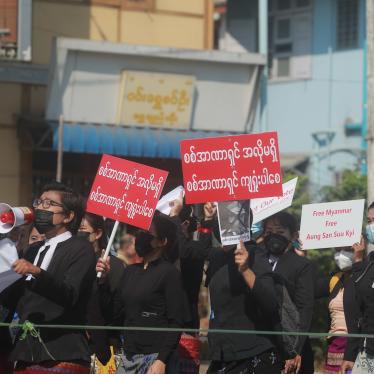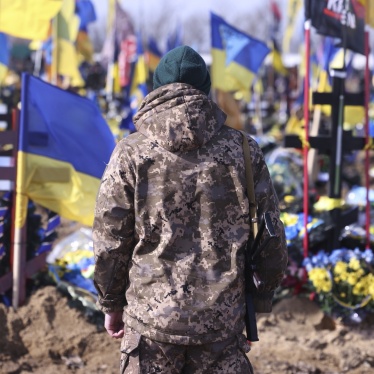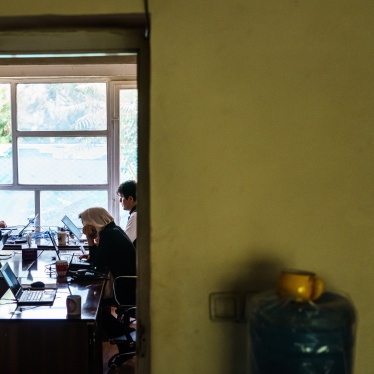(New York) - The Pakistani government should not block or use violence against peaceful demonstrators protesting the “suspension” and mistreatment of the Supreme Court’s chief justice, Human Rights Watch said today.
On March 16, lawyers’ groups and opposition political parties plan to hold protests and demonstrations across Pakistan as the country’s Supreme Judicial Council, a body constitutionally mandated to hear complaints against the senior judiciary, resumes its hearing of President General Pervez Musharraf’s complaint against Chief Justice Iftikhar Muhammad Chaudhry. On March 9, Pakistan’s military leader summoned the chief justice to his office and dismissed him for alleged “misuse of office.”
The Pakistani government has diverted thousands of additional security personnel to Islamabad and has put the capital under “high alert.” Members of lawyers’ groups and human rights organizations as well as opposition supporters told Human Rights Watch that they feared the police and intelligence personnel would repeat the violence they used earlier in the week to stop protests from taking place. Scores of opposition supporters have been arbitrarily detained, and hundreds of lawyers have been charged under various provisions of the criminal code for protests since March 13.
“Musharraf’s government should end this constitutional crisis by halting the illegal actions against the chief justice that have led to these protests,” said Ali Dayan Hasan, South Asia researcher at Human Rights Watch. “Trumped-up charges against lawyers must be dropped, demonstrators arbitrarily detained must be released, and peaceful protest must be allowed.”
The government has still not released any details of the charges against Justice Chaudhry and said the hearing will be closed to the public. Pakistan’s bar associations and international and Pakistani human rights groups have all demanded a public hearing. Lawyers on Justice Chaudhry’s defense team told Human Rights Watch that they had not been given any access to him or to a copy of the reference filed against him.
“How can the chief justice’s lawyers be expected to defend him when they aren’t even allowed to meet him or presented with charges to rebut?” said Hasan. “Pakistan’s Supreme Judicial Council needs to show it can act independently and hold a fair hearing. So far it is failing.”
The Supreme Judicial Council has prohibited the Pakistani media from reporting on its proceedings, and the government has put pressure on the media to tone down its reportage on the affair. On March 12, the Pakistan Media Regulatory Authority (PEMRA) briefly suspended the broadcasts of two privately run television stations Aaj and Geo TV, after they transmitted footage of injured and bleeding lawyers beaten by police during a demonstration that day in support of Justice Chaudhry. On March 13, Musharraf’s minister for law and human rights minister, Wasi Zafar, used abusive language in a Voice of America program on the judge’s case apparently to intimidate Ansar Abbasi, a fellow panelist and Pakistani journalist, and his family.
“Having made a mockery of the rule of law, the government is trying to intimidate the media and others in order to prevent condemnation of its behavior,” said Hasan. “Musharraf’s functionaries must end their bullying of civil society now.”






